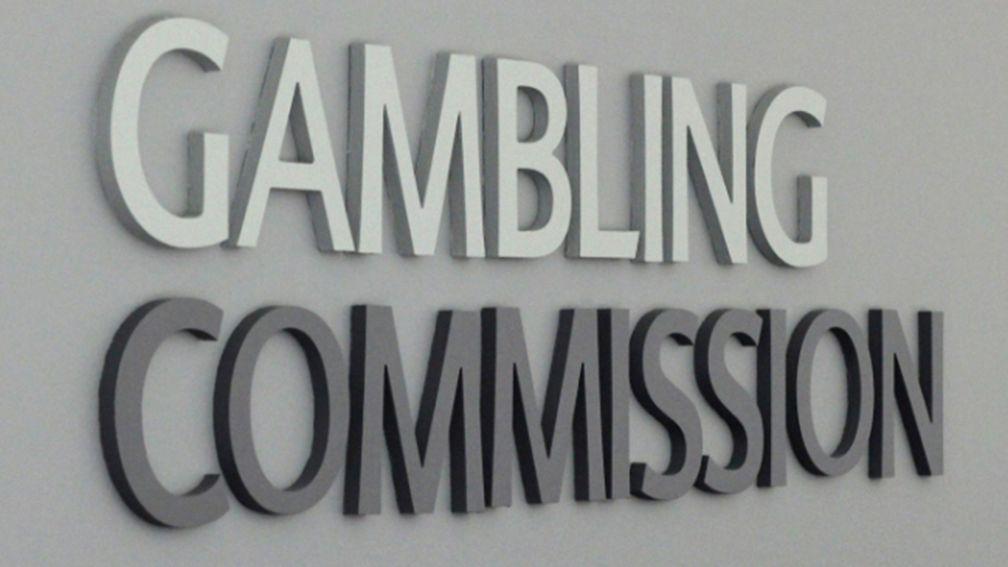The Gambling Commission needs to sort out voluntary settlements mess

At the start of Monty Python’s famous Lumberjack sketch, Michael Palin plays a barber with a mortal aversion to cutting hair, who muses that he would much rather be cutting down trees in the Canadian wilderness (wearing high heels, suspenders and a bra).
It is unclear what Britain’s Gambling Commission would rather spend its time doing – but recently it appears to have developed a phobia against enforcing its own rules, at least where the use of so-called ‘voluntary settlements’ are concerned.
Voluntary settlements involve payments, made by betting operators for compliance breaches in lieu of financial penalties, which are used to support gambling harm prevention initiatives.
Between March 2019 and July 2023, the commission dished out around £90 million in awards – but to what effect is anyone’s guess.
While there are rules governing the use of these funds, it has become clear these stipulations are from the same kiln that produced the chocolate teapot.
The publication in April of a report by the National Institute of Economic and Social Research (NIESR), ‘The Fiscal Costs and Benefits of Problem Gambling: Towards Better Estimates’ provides a good illustration of what has been going wrong.
NIESR was paid £140,050 to produce its report, which alleged that ‘problem gambling’ cost the British government £1.4 billion a year in excess use of public services – and that claimed this was likely to be an underestimate.
There are only three things wrong with the NIESR report. First, it is mathematically illiterate, characterised by basic errors of multiplication, division and addition that would embarrass a primary school pupil.
Second, it is methodological balderdash. Almost 60 per cent of its cost estimate was based on the entirely unproven, utterly implausible (and very possibly discriminatory) claim that anyone who wins £500 and is economically inactive due to ill health should be considered an ‘at risk gambler’ (it also suggested that non-gamblers can be ‘problem gamblers’).
The third, and arguably most concerning, aspect of the report is that it appears to be a thoroughly political project, aimed at persuading the government to adopt restrictionist policies as part of its Gambling Act review. If this is the case then it is in breach of the rules concerning the use of voluntary settlement funds.
The commission’s rules state that “regulatory settlement funds will not be applied for the purposes of campaigning or lobbying”.
The NIESR report appears, however, to be explicitly political. Its stated aim, for example, is “to establish the costs and benefits of gambling, with a focus on gambling-related harm, so that the government (particularly HM Treasury) can make informed decisions about these costs once the Gambling Act review white paper is published”.
The idea that a cost-benefit analysis might be ‘focused on harm’ is clearly nonsensical and suggests a hidden agenda.
Once the report had been published, NIESR returned to this theme by claiming “now that we know there is likely as much tax revenue to gain as there is to lose, government legislation should be bold and tackle the potential drivers of gambling-related harm it thinks need addressing without fear of a negative impact on the public finances”.
The idea that the sole purpose of betting is the generation of taxation (and that tax is the only reason to permit a betting market) is economic nonsense and a mark of disdain for the millions of people in this country who enjoy a flutter.
In 2022, NIESR tweeted, “What damage is #Gambling reeking [sic] on our society and on the #Economy? Our new project is set out to measure this cost. Using our unique modelling capacity we aim to give public health officials a comprehensive economic assessment”.
And this year it wrote “for the past thirteen years, the Conservatives have done little to tackle the excesses of online gambling. True to their Thatcherite creed of low business taxes, the Tories stood by as remote gambling operators based parts of their activities in offshore territories such as Gibraltar and thereby avoided certain taxes and duties that land-based operators have to pay”.
It is difficult to construe these comments as anything other than overtly political. NIESR’s work would therefore appear to fall under the category of ‘lobbying and campaigning’ – and thus be in breach of the funding rules – but herein lies the rub.
Although rules appear to have been broken, there is absolutely no recourse to sanction and no mechanism for retrieving the misspent funds. This is not an isolated example.
A report from the Centre for Governance and Scrutiny was withdrawn earlier this year amid concerns that it was based on misleading claims about the harmfulness of gambling and that it wrongly asserted the authority of the Gambling Commission. It is unclear whether the £102,000 paid to the centre will be refunded.
A number of overtly anti-gambling projects appear therefore to have been funded using quasi-public money and with the explicit approval of the market regulator.

To a certain degree, the commission is boxed in by flaws in the system that prevent it from checking that money awarded under voluntary settlements is used ethically; but this is only a partial excuse.
Concerns were expressed about the system last year by the select committee for culture, media and sport – but the regulator has carried on regardless, including awards of several millions to researchers involved in the NIESR debacle.
The system of voluntary settlements is a mess – with funds that could be used to support those with a gambling disorder diverted to anti-gambling activism. The mess is not entirely the commission’s fault but the absence of any acknowledgement that an issue even exists is troubling.
For an organisation struggling to restore trust and credibility, sunlight is likely to be the best disinfectant
Dan Waugh advises on gambling regulation at Regulus Partners
Flutter closes Fox Bet
Flutter Entertainment and broadcaster Fox Corporation revealed last week it would shut down US sports betting platform Fox Bet this month in a phased closure. Fox will continue to hold its option to acquire 18.6 per cent of Flutter's US arm FanDuel, along with the 2.5 per cent stake it holds in Flutter. It will also retain the Fox Bet brand.
Gamstop records sign-ups growth
Online self-exclusion scheme Gamstop recorded a 12 per cent year-on-year increase in sign-ups in the first half of 2023. More than 48,000 consumers registered for the scheme in the first six months of the year.
Ice on the move
Gambling industry conference Ice is to leave London after next year, organisers Clarion Gaming announced last week. Ice is set to move to Barcelona from 2025 following a six-month bid process which also involved London, Madrid and Paris.
Read more:
The Gambling Commission is waging a war on punters, and this is our last chance to fight back

Subscribe to Racing Post Members' Club Ultimate Monthly and pay just £9.99 per month for your first two months!
Available to new subscribers purchasing Ultimate Monthly using code SUMMER. First two payments charged at £9.99, renews at full monthly price thereafter. To cancel please contact us at least seven days before subscription is due to renew. Offer expires 30/09/2023.
Published on inBetting World
Last updated
- New gambling survey will improve previous 'outmoded' methodology, claims regulator
- 'One of a kind and very special' - Jeremy Chapman on the pioneering bookmaker Mervyn Wilson
- Another milestone for Flutter as industry giant continues pivot to the US - but Illinois tax hike 'will cause real harm'
- General election decision leaves government's gambling reforms in limbo
- Tackling gambling's black market likened to 'whack-a-mole' by senior DCMS civil servant
- New gambling survey will improve previous 'outmoded' methodology, claims regulator
- 'One of a kind and very special' - Jeremy Chapman on the pioneering bookmaker Mervyn Wilson
- Another milestone for Flutter as industry giant continues pivot to the US - but Illinois tax hike 'will cause real harm'
- General election decision leaves government's gambling reforms in limbo
- Tackling gambling's black market likened to 'whack-a-mole' by senior DCMS civil servant